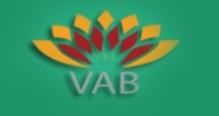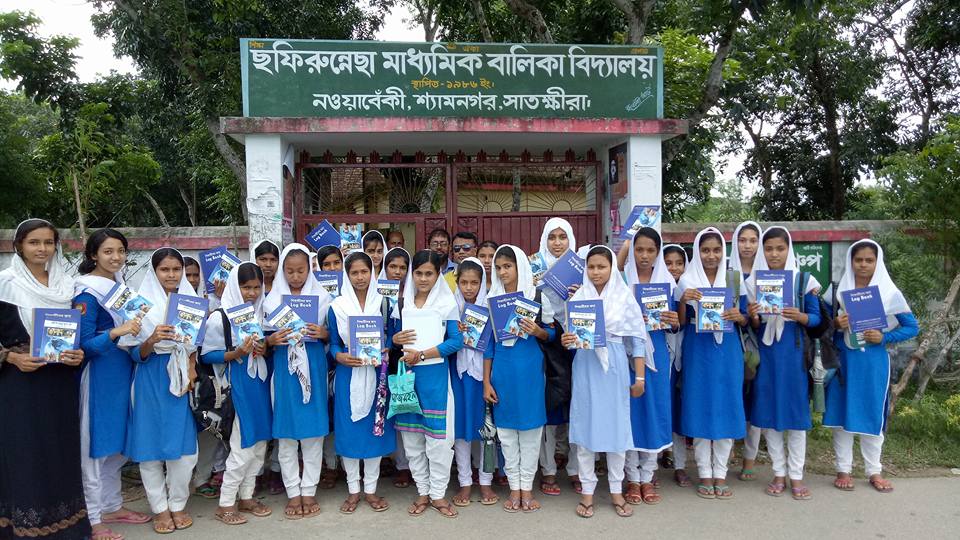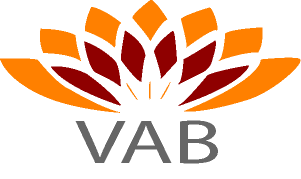
Volunteers Association for Bangladesh
Student Empowerment
A series of measures are undertaken to enable the students acquire excellence in learning, especially science, mathematics, language and communication, at the same time developing all- rounded capability. Leadership, teamwork and work ethics are in-built in the student initiated activities through clubs for debate, cultural activities and sports. Reading habits are developed through participatory discussions in book clubs. Debates, cultural programs, project presentations and a host of associated student activities enhance the cognitive and creative skills as well as the language and communication skills of the students. Students are trained by the teachers to participate in competitions in math, science, computer and general knowledge. Students selected for national competitions are also mentored and trained in camps or workshops. A significant feature in all student activities is the transfer of responsibility of the activities from the teachers to the students; the students are the drivers of the activities with the teachers acting primarily as guide and mentor. Details are presented below for the seven measures:
Scholarship
VAB initiated its mission in 2000 in Bangladesh with a scholarship project for poor rural students in order to spread high school education among them. The students are listed in order of merit and the poor students amongst those are selected. Those students obtaining financial assistance from other sources and those who come from families with better financial condition are not considered for the scholarships. VAB staff often interviews the students, their parents and members of the community and, in some cases, visit their homes in order to ensure eligibility. The scholarship is aimed at covering the key educational expenses of an awardee, taking into account assistance provided by other sources including government sources (such as textbooks). The scholarship includes tuition fee (when it is not covered by other sources) and all other fees such as session fee (a fee taken by the school to cover various amenities), exam fee, etc. (handed over by VAB to the school authorities instead of the students) and in-kind as school supplies such as pens, papers and science instruments for the year.
Typically, the total value of the scholarship per student comes to Tk. 2,500 (about $32.50). Each year in each school, an initial number of twenty five to thirty students are chosen for scholarship depending on the number of total students in the school.
The scholarship materials are often given in a special ceremony attended by local and government dignitaries. This enhances community contact of the schools and draws the community to look into the welfare of the schools and of the scholars. This also showcases the importance of high school education.
Science Competition
Science teaching in the rural (non-metropolitan) areas of Bangladesh is losing ground to Arts and Commerce. Several reasons are cited, the most important being the perceived market demand for Commerce graduates. Limited research, teaching and business facilities for absorbing science graduates are othr reasons. Additionally, Arts is regarded as an easier option. There is a general apathy to science education, science learning is not considered interesting, and besides, science is seen as a “hard” subject, not easy to learn, more importantly difficult to score high marks compared to effort required. At the institutional level, science teaching is discouraged because of costly investment in labs and separate lab rooms.
Science Fair aims to bring fun into science teaching and learning by taking science out of textbooks and into the hands and minds of the students themselves. The students would learn by doing, while enjoying doing “projects” in a competitive environment. The “fair” part of the activity would generate general interest for science not only among the students but also among non-science students and the community.
The students in a school forms a Science Club (see below) and one of its functions is organizing science fairs for internal and external competitions. The members of the Science Club are guided and mentored by the teachers and by the volunteers from VAB and organizations connected with VAB. One of the major goals is to participate in regional and then national science fairs held annually in the country.
Mathematics Competition
Using arithmetic skills to do addition, subtraction, multiplication and division has become a thing of the past with the most widespread use of electronic calculators in Bangladesh. Even the humblest village grocer uses a small hand calculator. However, interest for things mathematical, let alone enthusiasm or love for math is very uncommon. Yet, mathematics is about problem solving through the use of logic, something utterly essential in science and engineering, and necessary in any problem solving situation in life, where objective creativity and ingenuity leads to doable solutions.
Since 2001 Bangladesh is a participant in the International Mathematical Olympiad (IMO), the world championship mathematics competition for high school students. The participants are drawn through regional and national competitions, but in effect the district level is the lowest level of participating schools. VAB would is spreading the spirit of the Math Olympiad down to the upazila level.
Computer and ICT
VAB has a program to equip a computer lab with four computers, a printer and Internet access (see under “School Empowerment Programs”). While the provision of hardware and software falls under “School Empowerment”, “Student Empowerment” is designed to be achieved by giving special training to students enrolled in the subject of “Computer”. The special training will use the VAB’s practice oriented module.
Language, Communication Skills, Leadership and Teamwork
Rural students are acutely disadvantaged in language and communication skills. Teachers’ training is carried out to improve the teaching of language and communication (see below). Participation in Math Competitions, Science Fairs and General Knowledge Competition enhances the knowledge base and exposure of the rural students to global developments. The capability of the students will be greatly enhanced if all these activities, both at the planning and the implementation stages, are carried out by the students. A number of student clubs are instituted to undertake the student programs:
- Math and Science Club
- Books and Library Club
- Cultural and Debating Club
The Math and Science Club organizes participation in Math Competitions and Science Fairs. The Book and Library Club promotes reading books and setting up sessions for discussion on books read. This Club may also promote General Knowledge Competitions. The Cultural and Debating Club organizes cultural and debating programs for the students. The clubs are guided and mentored by the teachers. A novel approach is adopted to set the clubs in motion. VAB volunteer team is sent out to the schools with the purpose of setting up the clubs at the schools. The Headmaster is the Chief Advisor of all the clubs, with one teacher associated with every club as an advisor.
The clubs are student-centered and are run by the students, with the advisor acting as mentor. The club organizers are trained by the volunteers from VAB and the participating VAB partners. The clubs have a plan for year round activities that VAB monitors and evaluates.
Training for Club Operation
Training is provided by VAB and partner organization volunteers for effectively running the clubs with an action plan.
Performance Award for Students and Clubs
The best performers in competitions and club success are recognized through awards and citations.
VAB’s Student Empowerment Programs
The Table below shows clearly the efforts undertaken by VAB to bring the benefits of quality education to all the students of the school. The Table indicates the number of students directly benefitted by the programs. The benefits eventually transmit to the whole body of students.
The computer literacy program is carried out by the teachers, following a curriculum and methodology developed by VAB. The Group method was introduced to the teachers in meetings and workshops, and then demonstrated in the class so that the students also have a clear appreciation of their roles and responsibilities.
Table: VAB’s Student Empowerment Programs, 2012-2020
|
Name of Program |
Program Components |
Coverage |
Remarks |
|
|
Students |
Schools |
|||
|
Scholarship |
High School Scholarship |
14,476 |
84 |
Both in Cash and Kind |
|
Students Club |
Debate, Sports, English and Volunteers Clubs |
7,340 |
50 |
|
|
Tutoring |
Grade VI |
8,356 |
|
In Math & English |
|
Training |
Leadership Groups of the Four Clubs |
9,000 |
50 |
Debate, Sports, English and Volunteers Clubs |
|
How to Run an Effective Club |
1,800 |
50 |
Debate, Sports, English and Volunteers Clubs |
|
|
English Conversation and Pronunciation |
3,200 |
40 |
Online and Onsite |
|
|
Computer Literacy |
12,200 |
50 |
Trained by the Schools |
|
|
Math Olympiad |
556 |
40 |
|
|
|
Group Method |
22,000 |
33 |
|
|
|
Competition |
English Poetry Recitation |
29 |
15 |
|
|
Math Olympiad |
1,648 |
38 |
Number of competing students higher than trained ones? |
|
|
Football and Cricket |
1,700 |
52 |
|
|
|
Computer Proficiency |
140 |
20 |
|
|
|
Spelling Bee |
550 |
30 |
|
|
|
Debate |
744 |
50 |
Onsite and Online |
|
|
English Conversation |
250 |
25 |
Online |
|


Quality education for the underprivileged in rural Bangladesh.
CONTACT US
USA: 122 Taxter Road
Irvington, New York 10533
Phone: (914) 231-7972
Email: mati_pal@yahoo.com
Email: mati_pal@vabonline.org
BANGLADESH: House 806, Road 3, Baitul Aman Housing Society, Adabor, Dhaka – 1207, Bangladesh
Phone: 910-4558
Email: alimdu@gmail.com
© 2021 / All Rights Reserved